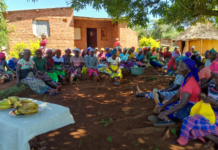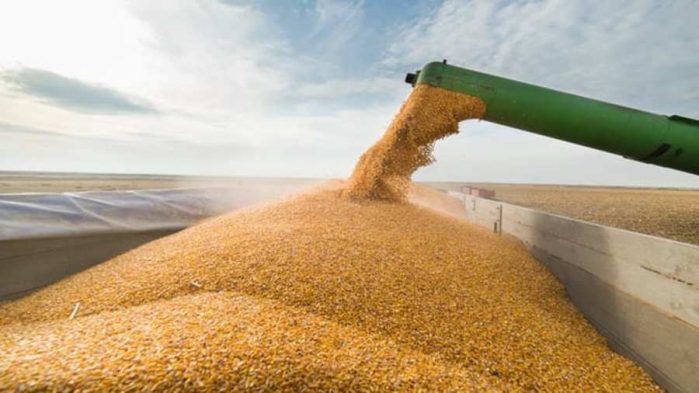The bad news is that there will be a food crisis.
It won’t happen because of the fast population growth, wars, lack of natural resources (water, land, and sunlight), logistics, climate change, or the inability to import food.
The food crisis will result from the lack of educated farmers needed to grow our food.
The good news is that the food crisis can be avoided, the situation is still reversible, and the solution is at our disposal.
The old phaseout, the young don’t join
In the previous column, I shared the story of Ran Sadot, an Israeli farmer who recently passed away after long years of sickness caused by insecticides.
During decades of professional activity, Ran accumulated unprecedented agricultural knowledge that staged him at the forefront of agricultural success from business and professional aspects.
Thanks to this, Ran’s income from each hectare was high, ranging from 25 to 50 thousand $ per hectare.
This, while the income of most small-hold farmers, which are 97% of global farmers, is as low as 50 to 500$ per hectare (1%! Only 1% of Ran’s income from the same size of land).
This may seem like a “success story,” which it is. Yet, Ran’s children choose not to follow the path their parents plowed and do not practice farming.
Ran is not alone; there are many Israeli farmers whose children do not follow them. The same happens in the EU, the USA, Africa, Asia, etc. This poses a global failure and risk to food production.
I spoke with farmers in Africa and India who told me how they fail to find young people to work with them in agriculture, particularly, to practice spraying.
The agrochemical companies gave a bad reputation to the agro sector as if agriculture and pesticide sprays were one.
In today’s world, people are well aware of the negative impact of pesticides on human health, and no one is ready to spray poisons and hence work in agriculture.
Add the need to work in the blazing sun or freezing winds, with non-predictable and sometimes unexpected low income.
Will you advise your children to join such an industry!? Of course not. With agriculture’s lousy reputation, only a few young people choose it as their first career choice.
Let’s remember; young people have the alternative of migrating to the big cities, where the salaries are better, and there is 24/7 running water and electricity. Can you blame those who seek a better life?
When a farmer dies, it is like a giant baobab tree that falls; it will take decades for another to feel up its place.
The farmers I know are “walking treasures” of knowledge; when they die without passing this knowledge to their children, we lose something we will never regain.
Repeatedly I asked about “knowledge transfer,” as if it was a booklet that you pass to other farmers, and now they know it all.
“Knowledge” is not passed by talking for an hour or more; it is not passed on a seminar day, although we use such techniques to transfer limited knowledge on specific topics.
Whoever practiced agriculture by themselves knows that you learn by doing, by in-field practicing, day after day, month after month, year after year, season after season, crop by crop, step by step.
The most professional and successful Israeli farmers I know hire other skilled people to do specific jobs they are not qualified enough to practice.
This is how sophisticated and complex agriculture jobs are and how difficult modern agriculture is.
I had the privilege of learning agriculture with and from my father while working together and discussing related issues to the day he died.
Even after 15 years of agricultural academic studies and over twenty years of working with farmers in many fields and countries, I will never reach the knowledge my father had; it is forever gone.
Only some people are as lucky as my father, who was able to pass me part of his knowledge. Millions of farmers have no one to pass their knowledge to, and their land will be deserted as they die.
I cry the death of every farmer and fear the massive extinction of knowledge and the food crisis it may impose upon us.
The range of high-tech workers remains young (20-50), while most farmers are 40 to 70 years. Even in Africa, where the population is the youngest, farmers are old – 60.
If your father works in high-tech, you wish to follow him, which is the opposite if your father is a hard-working farmer.
Most farmers’ children wish to change professions, as being a farmer doom you to a hard life and, often, a life of poverty.
Do you see the roots of an imminent global food crisis?
What is the value of a future with computers, electric cars, AI, and an iPhone, when we don’t have enough food of proper quality!?
WHAT CAN WE DO?
The solution will not come by “explaining” and convincing young people how great it is to be a farmer, the wonderful feeling you have when applying poisonous chemicals, and the tremendous excitement when you get a meager price for your produce, which cheerfully leads your family to poverty.
The solution is a result of changing the way we practice agriculture.
Consumers demand healthier produce grown in a healthier environment, and the Global Challenges say out loud that we must practice agriculture differently. Recent history shows that the agrochemical companies led us to a dead end.
The solution is to have an agro-industry that children and young people will dream of being part of, an industry that offers good health, secure livelihood, pride, and respect.
This is a call for the rebranding of the agro sector using the following two components –
A) Regenerative-oriented agriculture – to meet consumers’ values and environmental demand. We can’t meet this goal if we keep using pesticides and fertilizers as we do now.
Unlike professional farmers, which are “addicted” to using pesticides and fertilizers, small-hold farmers are not (yet).
Small-hold farmers are ready to adopt novel approaches as soon as they gain trust and see it brings the desired results.
This was the case when hundreds of Senegalese Mango growers joined the Dream Valley program in 2021 and stopped using pesticides and fertilizers in a blink. Results were better than ever, i.e., Senegal doubled its mango export, farmers their income, and consumers were happy getting better quality and healthier fruits.
B) Far more profitable and secure agriculture– This applies to farmers and the entire value and supply chain.
We need investors to help us bring the desired changes we dream about. Investors are looking for fast and high ROI with high security.
Decades of repeated failures proved this is impossible using current business models and technologies. However, as presented by Dream Valley in Senegal and other places, it is possible when we think and act differently.
As an investor, should I invest in professional or small-hold farmers?
The short answer is that the stoke exchange invests in your potential ability to increase your income and profit; in your expected rate (%) of growth.
Assume there are two farmers, one with an income of $ 500 and the other with $ 50,000 per hectare.
Now I ask you, as a friend, to help me decide where to invest my money, on the professional or the smallholder.
I share with you that the criteria are the farmers’ Rate of Income Increase, which has nothing to do with their initial income.
If the farmer’s income decreases or remains unchanged, I lose or don’t make money. However, if the farmer increases his income by 5% or 500%, I make a parallel profit.
Where should I invest if my goal is 300% profit, on the farmer making$ 500 or the one making$50,000?
Knowing professional farmers, the chances that they will triple their income even in a decade is slim.
In contrast, in all the programs I have been involved with, small-hold farmers almost always increased their income from 200% to 500% in one year.
It happened even in the national-scale pilot in Senegal.
Though counter-intuitive, both criteria point out that small-hold farmers have a greater propensity to bring the changes we need to survive – enough farmers practicing profitable regenerative agriculture, which mitigates global warming and creates added value for consumers.









